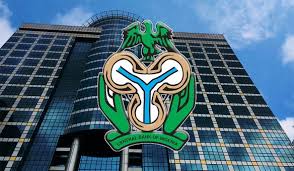Members of the Committee on Budget of Ugandan parliament have arrived in Nigeria to understudy the constituency project system.
Speaking at a workshop organised by National Institute for Legislative and Democratic Studies (NILDS), Chairman of the committee, Mr Philip Opolot, said they came to understand the workings of Nigeria’s Constituency Development Fund (CDF).
The News Agency of Nigeria (NAN) reports that the workshop had as its theme: ‘Maximising Impact through Effective Utilisation of Constituency Development Fund for Better Quality Representation at Parliament’.
Opolot said that in Uganda, all funds were domiciled with the executive which carried out intervention as deemed necessary.
He said that a discussions on allowing lawmakers to handle CDF were ongoing since they knew the constituencies better; hence, the need for the workshop.
In his remarks, Director-General of NILDS, Prof. Abubakar Sulaiman, called for vibrant constituency relations between legislators and constituents in order to maximise CDF.
Sulaiman said that the theme of the workshop was not only topical but timely in view of the importance of CDF as a critical ingredient of democracy.
According to him, in modern democracy, citizens expect to have constant interactions with their elected representatives who can help them address their collective needs.
The director-general stated that the process of constant relations with the people, usually known as constituency relations (CR), was always of mutual benefits to both the elected representatives and the constituents.
“On the part of the elected representatives, it helps to generate policy inputs from the constituents, such as their needs, their assessment of the performance of the legislature and the government in general.
“On the other hand, it helps the constituents to present their needs to their representatives.
“Constituency relations, therefore, provides a direct channel for gathering policy inputs, understanding constituents’ needs and receiving feedbacks on their performance as well as that of the legislature and government at large,” he said.
Sulaiman identified constituency development fund (CDF) as a key component of constituency relations, saying it played crucial role in grassroots development by enabling legislators to finance and implement community-driven projects.
“The effective management of these funds ensures transparent, efficient resource allocation that aligns with national development goals,” he said.
Also speaking, the Ugandan Deputy High Commissioner to Nigeria, Amb. Philip Odidah, commended the National Assembly leadership for its unwavering commitment to strengthening legislative institutions across the African continent.
Odidah said that the role of parliament in any democracy was indispensable, stressing that as representatives of the people, legislators carried the immense responsibility of enacting laws and providing oversight.
According to him, the parliament also ensures that governance aligns with the deep aspirations of the citizens whom they represent.
“This capacity-building programme is, therefore, a commendable initiative to equip Ugandan parliamentarians with essential tools for effective governance, democratic engagement and best practices in legislative work,” he said.
The director-general urged the parliamentarians to take full advantage of the expertise and insights that would be shared.
This, he said, should be an opportunity for constructive dialogue, experience sharing and strengthening of inter-parliamentary cooperation between Uganda and Nigeria.





















